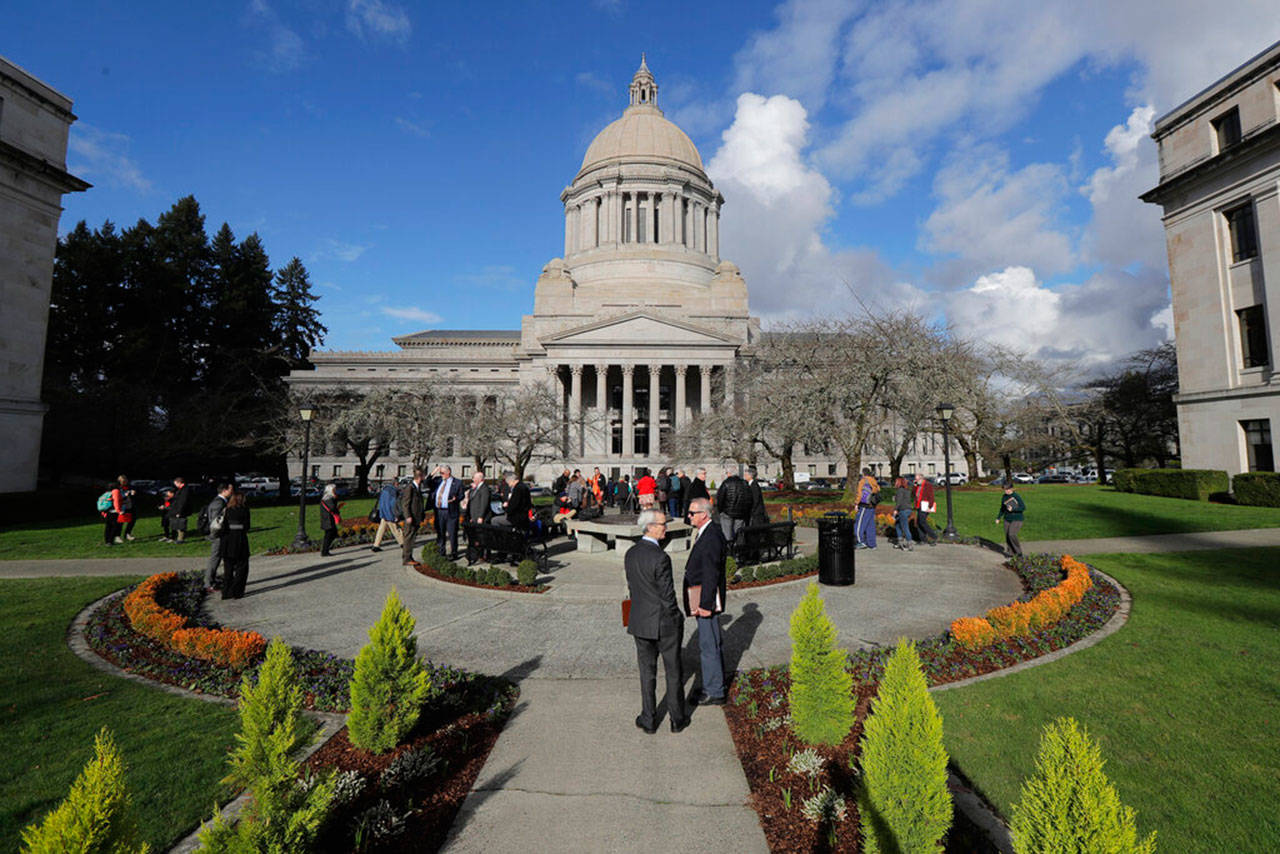By The Herald Editorial Board
Your ballot this fall could be less cluttered and your voters guide slimmer if a bill in the state Legislature does away with the tax “advisory” votes that have appeared on ballots since 2008.
Adopted as part of Initiative 960 in 2007, the inclusion of the “advisories” on the ballot are supposed to allow the state’s voters to tell legislators whether a tax — passed earlier that year by state lawmakers — should be maintained or repealed.
In the last election, there were a dozen of them, enough that the “advisory” votes took up the ballot’s first page, relegating all other measures and elected offices to the back of the ballot. The same thing happened in 2016 when the election for U.S. president effectively became a down-ballot race, following the tax “advisories.”
Former Snohomish County Auditor Carolyn Weikel, after the November election, shared her concern that the length of the ballot might have discouraged voter turnout, or at least prompted some voters to wait until the last minute to get ballots in. As it was, turnout for the general election reached only 42.9 percent.
You’ll have to excuse the air-quotes, but there’s little “advisory” about these ballot measures, and The Herald Editorial Board has repeatedly advised against wasting even the slightest bit of ink in marking ballots one way or the other regarding them.
Unlike a legitimate advisory vote — one that’s taken prior to the action of a government body — the tax “advisory” votes don’t require any action by state lawmakers and don’t inform them prior to a particular vote; they’re little more than a public opinion poll. And they are no better than the least accurate of polls, a “push poll,” written to prod a respondent to a particular position.
There was an actual advisory vote on Snohomish County ballots last fall. Voters in unincorporated areas of the county were asked in a nonbinding advisory vote if they favored a fireworks ban. About 56 percent voted in favor of the ban, and the Snohomish County Council considered those results as it approved a ban in December in the South County Fire District, where support was even higher at 59 percent.
Supporters of the tax advisories, notably initiative promoter Tim Eyman, among I-960’s original sponsors, have defended the ballot measures as key to holding lawmakers accountable and to informing the public about the tax decisions made each year. Both are good policy goals. But the ballot language for such measures, as mandated by the initiative, is poorly worded with loaded terms meant to encourage people to vote for “repeal.”
The ballot language advises that the Legislature took action on the tax in question — with a cynical aside — “without a vote of the people.”
Well, yes, that is how a representative democracy works. We elect representatives, who then draft and vote on hundreds of bills, including new taxes, tax increases and the repeal of taxes, without putting each before the voters. It is why we have a Legislature. Those unhappy with the actions of their lawmakers, whether it’s on taxes or any other issue, are free to vote to remove them in the next election, which, by the way, comes this year.
Nor do the tax advisories even do a good job of informing the public. Both the ballot language and the voters guide are lacking in context or detail on how the revenue from the tax will be used. Voters see only what is generally being taxed and what the tax is estimated to raise over a 10-year period, but aren’t told where the money is going, beyond “government spending.”
Sen. Patty Kuderer, D-Bellevue, prime sponsor of Senate Bill 6610, said this leads to a conflicting message sent to lawmakers. During a Feb. 5 hearing before the Senate’s elections committee, Kuderer noted the vote in 2017 regarding legislation that — after a decade of debate, under a state Supreme Court mandate in the McCleary decision and after hearing from constituents that the state needed to increase spending to amply fund public schools — adopted an increase in the state’s property tax, while limiting what local school districts could collect.
“The advisory vote that year stated that we would be spending a $13 billion tax increase for ‘government spending.’” Kuderer said. “To no one’s surprise nearly 60 percent of voters said the tax should be repealed, despite the overwhelming demand of our constituents to fully fund public education.”
The ballot advisories fail to inform taxpayers as to how their tax dollars are being used and are of little value to lawmakers in determining voter support or lack of it for their decisions.
Originally, Kuderer’s bill had included a provision to create a task force to draft recommendations regarding how best to gather and report public opinion on specific tax decisions and other fiscal issues. That provision was removed from the bill, but may still be adopted as part of negotiations for the supplemental budget.
As for informing the public of decisions made by the Legislature regarding taxes, the voters guide and the ballot are not effective nor appropriate for that purpose; both are limited in what information can be provided and are not widely circulated among all residents, specifically nonvoters.
Fortunately, state residents already have publications that can help keep them informed as to the decisions on taxes and other issues made by state lawmakers and other public officials. You’re reading one right now.
Talk to us
> Give us your news tips.
> Send us a letter to the editor.
> More Herald contact information.

























